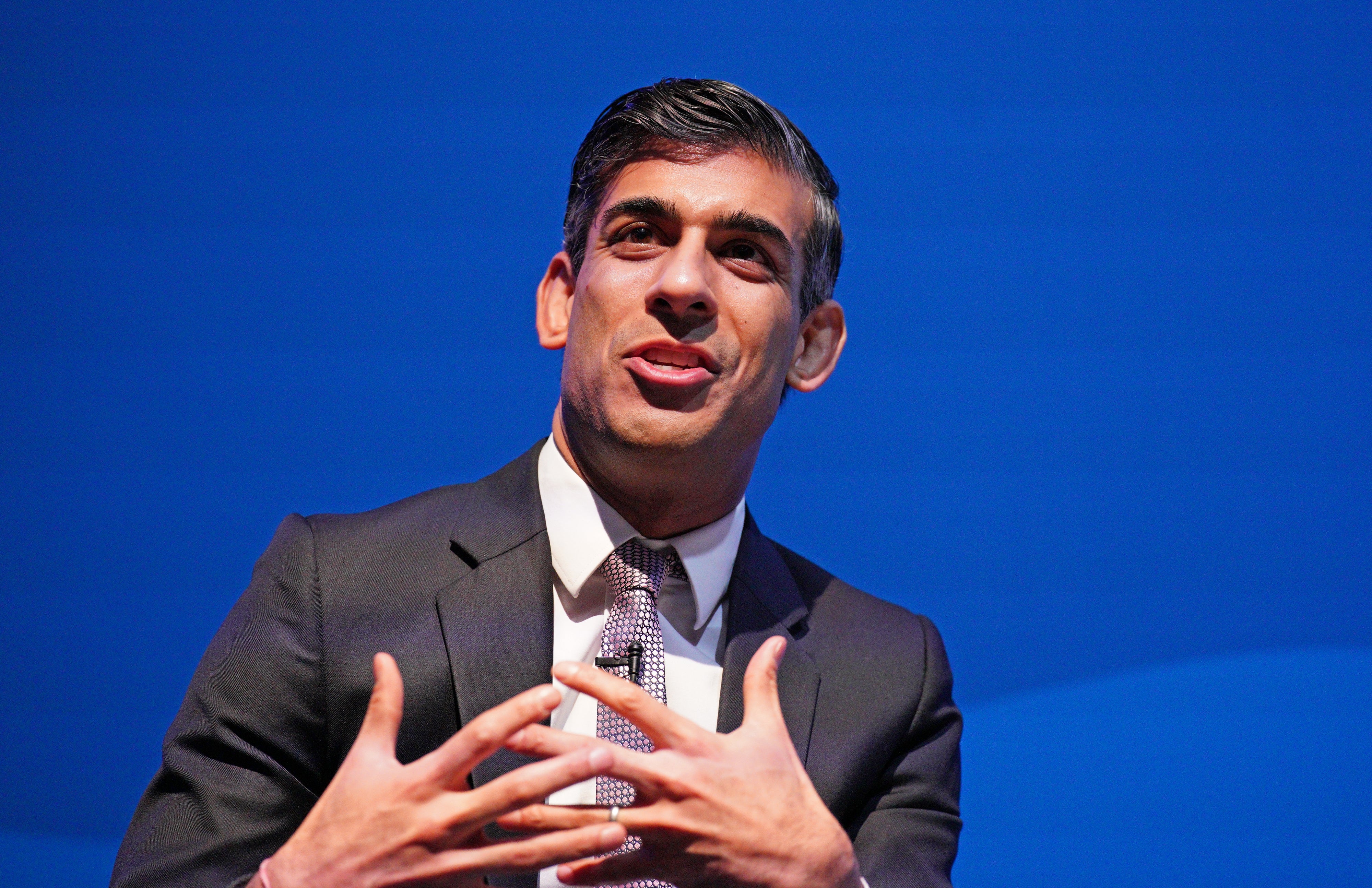Sunak admits he cannot solve ‘every problem’ in face of cost of living crisis
The Chancellor said the Government would help ‘where we can’ in next week’s spring statement.

Your support helps us to tell the story
From reproductive rights to climate change to Big Tech, The Independent is on the ground when the story is developing. Whether it's investigating the financials of Elon Musk's pro-Trump PAC or producing our latest documentary, 'The A Word', which shines a light on the American women fighting for reproductive rights, we know how important it is to parse out the facts from the messaging.
At such a critical moment in US history, we need reporters on the ground. Your donation allows us to keep sending journalists to speak to both sides of the story.
The Independent is trusted by Americans across the entire political spectrum. And unlike many other quality news outlets, we choose not to lock Americans out of our reporting and analysis with paywalls. We believe quality journalism should be available to everyone, paid for by those who can afford it.
Your support makes all the difference.The Chancellor has vowed to help the public “where we can” with the cost of living crisis but admitted that the Government cannot “solve every problem”.
With household budgets being squeezed by rising energy bills – exacerbated by Western moves to diverge from Russian oil and gas following Moscow’s invasion of Ukraine – soaring petrol prices and an increase in national insurance contributions, Rishi Sunak admitted the situation was “difficult” for Britons.
But he defended the decision to increase national insurance next month to fund clearing the Covid-19 NHS backlog, arguing he was following in Margaret Thatcher’s footsteps by dealing with the deficit after pandemic borrowing reached highs not seen since the Second World War.
I can’t solve every problem, no government can solve every problem
Speaking in conversation at the Conservatives’ spring forum in Blackpool, Mr Sunak said it had felt like the UK Government was lurching from “crisis to crisis”, having only been appointed Chancellor a few weeks before the coronavirus lockdown.
Since then, ministers have had to react to fast-paced inflation, retail supply trouble, a fuel crisis and the conflict in Ukraine.
The Chancellor, who is due to give the spring statement on Wednesday, said he would intervene to help workers and families where he could “make a difference” but admitted factors like global inflation were “somewhat out of my control”.
“I have enormous sympathy for what people are going through at the moment and that’s why we will always be there to help make a difference where we can,” said Mr Sunak.
“I can’t solve every problem, no government can solve every problem, particularly when you are grappling with global inflationary forces – they are somewhat out of my control.
“But as you saw a month or so ago when we announced the very significant intervention to help people meet some of the additional costs of energy bills, where we can make a difference, of course I can – I’m always going to do that, we’ve done it over the last two years.”
Drawing comparisons to Mrs Thatcher’s time in power, Mr Sunak said the former prime minister and her chancellor Nigel Lawson had to tackle the deficit before they could slash taxes.
Having chosen to increase national insurance contributions by 1.25 percentage point in April, he argued it would not have been “economically responsible” to have failed to address the financial problems caused by the pandemic.
But the Cabinet minister stressed that tax rises were over, with Britain’s tax burden set to rise to its highest levels in 70 years.
“That is done. We have made the difficult decisions that we had to make,” he added.
“My priority going forward is to cut taxes. I made that very clear at the Budget.”
Conference attendees also heard from Brexit minister Jacob Rees-Mogg and Transport Secretary Grant Shapps, with Health Secretary Sajid Javid and Levelling-Up Secretary Michael Gove set to speak in the afternoon.
Mr Rees-Mogg said he had been tasked by the Prime Minister to make the country more “competitive” after leaving the European Union.
There was a need to “repeal” laws deemed “redundant, obsolete and cumbersome” to “turbo-charge” efficiency, he told the conference.
He said he wanted a “bonfire” to “remove the nonsense” of Brussels regulations that were still embedded in UK law.
Offering an endorsement of Boris Johnson’s drive towards renewable energy, the Transport Secretary argued that increasing electric car ownership would help the country turn away from dependence on the Russian President’s regime.
“Here’s the question: who do you want controlling your drive to work on Monday morning?,” Mr Shapps said.
“Is that to be at the mercy of Vladimir Putin as he turns the fuel tap on and off again? Or do you want an energy policy that is home grown and under our control?
“An electric car charge can be powered by solar, by wave, by nuclear – electric vehicles are a win-win.
“They are better for the environment but they also ensure our long-term energy security.”